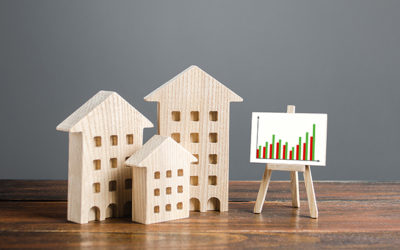
When you’re thinking about buying a home, your credit score is one of the biggest pieces of the puzzle. Think of it like your financial report card that lenders look at when trying to figure out if you qualify, and which home loan will work best for you. As the Mortgage Report says:
“Good credit scores communicate to lenders that you have a track record for properly managing your debts. For this reason, the higher your score, the better your chances of qualifying for a mortgage.”
The trouble is most buyers overestimate the minimum credit score they need to buy a home. According to a report from Fannie Mae, only 32% of consumers have a good idea of what lenders require. That means nearly 2 out of every 3 people don’t.
So, here’s a general ballpark to give you a rough idea. Experian says:
“The minimum credit score needed to buy a house can range from 500 to 700, but will ultimately depend on the type of mortgage loan you’re applying for and your lender. Most lenders require a minimum credit score of 620 to buy a house with a conventional mortgage.”
Basically, it varies. So, even if your credit isn’t perfect, there are still options out there. FICO explains:
“While many lenders use credit scores like FICO Scores to help them make lending decisions, each lender has its own strategy, including the level of risk it finds acceptable. There is no single “cutoff score” used by all lenders, and there are many additional factors that lenders may use . . .”
And if your credit score needs a little TLC, don’t worry—Experian says there are some easy steps you can take to give it a boost, including:
1. Pay Your Bills on Time
Lenders want to see that you can reliably pay your bills on time. This includes everything from credit cards to utilities and cell phone bills. Consistent, on-time payments show you’re a responsible borrower.
2. Pay Off Outstanding Debt
Paying down what you owe can help lower your overall debt and make you less of a risk to lenders. Plus, it improves your credit utilization ratio (how much credit you’re using compared to your total limit). A lower ratio means you’re more reliable to lenders.
3. Don’t Apply for Too Much Credit
While it might be tempting to open more credit cards to build your score, it’s best to hold off. Too many new credit applications can lead to hard inquiries on your report, which can temporarily lower your score.
Bottom Line
Your credit score is crucial when buying a home. Even if your score isn’t perfect, there are still pathways to homeownership.
Working with a trusted lender is the best way to get more information on how your credit score could factor into your home loan.
To view original article, visit Keeping Current Matters.
Real Estate Is Soaring, But Not Like 2008
“Our first look at 2020 data suggests that we could see the most competitive home shopping season in years, as buyers are already competing over…homes for sale.” Jeff Tucker, Zillow Economist
How Interest Rates Can Impact Your Monthly Housing Payments
If you’re thinking about buying a home, mortgage rates are working in your favor. Waiting may mean a significant change in your payments.
How Your Tax Refund Can Move You Toward Homeownership This Year
If you’re looking to buy a home in 2020, have you thought about putting your tax refund toward a down payment?
10 Steps to Buying a Home
Here’s a guide with 10 simple steps to follow in the home buying process. Our favorite is #3! We are here to help you make your home buying process as easy as it can be! Call us today!
How Much “Housing Wealth” Can You Build in a Decade?
“Homeownership is an important source of wealth creation, enabling current homeowners to move up the economic ladder.”
Thinking of Selling? Now May Be the Time.
The market is entering the year like a lion. There’s no indication it will lose that roar, assuming inventory continues to come to market.







.jpg )



